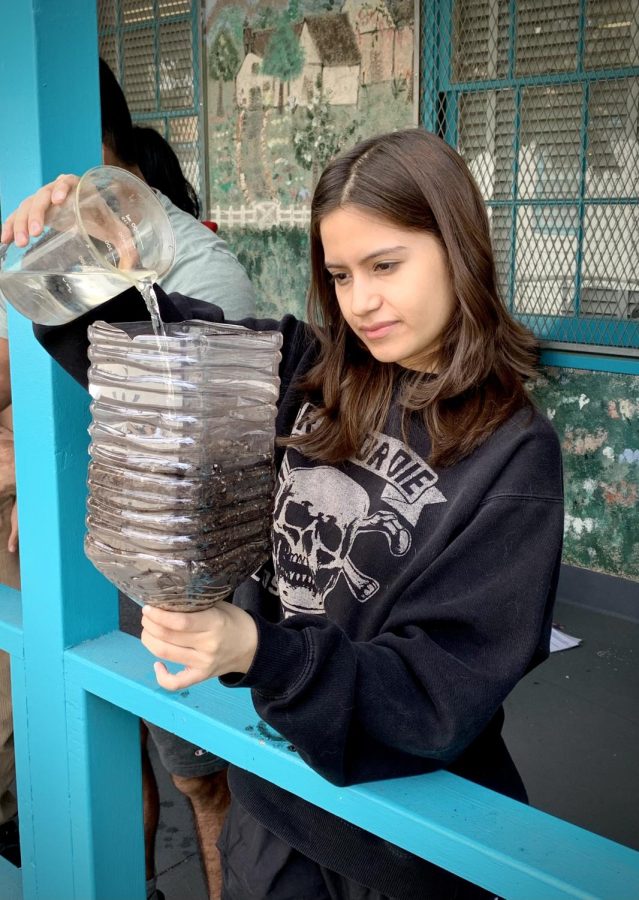State revisits climate change in curriculum
April 17, 2023

 For the third time in recent years, Assemblymember Luz Rivas is introducing a bill that would require students in grades 1-12 to learn about the effects of climate change and ways to mitigate it.
For the third time in recent years, Assemblymember Luz Rivas is introducing a bill that would require students in grades 1-12 to learn about the effects of climate change and ways to mitigate it.
“California is falling behind other states and countries about teaching climate change,” Rivas said in an interview by email. “As a result, we are missing critical opportunities to educate those who will be placed to help deliver the solutions to try and reverse the damages being done by climate change.”
Junior David Antonio believes students should learn more about climate change at lower grade levels but implementing it in high school might take away valuable time for other topics.
“People trying to spread awareness about climate change, they won’t have to worry about it because it’s going to be legally in the curriculum,” said Antonio, who took AP Environmental Science in the fall. “But at the same time you have to update all of the material and the resources and that’s going to come down to a lot of taxpayer dollars.”
Rivas, who represents California’s 39th district, introduced Assembly Bill 285 on Jan. 24. She introduced similar bills in 2020 and 2022. Both AB 1922, introduced in 2020, and AB 1939, introduced in 2022, required students in grades 1-6 and 7-12 to have climate change implemented into their English, math, social sciences, science and visual and performing arts classes, similar to AB 285. Both earlier bills were never voted on while on the committee floor and as a result, died there. Hence, the bill has been re-introduced as AB 285.
The bill would require that these changes be made by the 2024-2025 school year. Daniel Pearl Magnet High School (DPMHS) science teacher Timothy Hughes has said he believes this bill is a good sentiment but the timeframe for the requirement isn’t achievable.
“I work to have students interact with topics that can be expanded upon with a conversation about climate change,” Hughes said. “(The bill) basically gives teachers and whole school systems about a year to put this together and I think that time scale is just a little short and I think that might be something that ends up killing the bill.”
Many DPMHS students say they think the bill should pass and that climate change in education should be expanded on. Both Antonio and senior Kayla Lopez say that they think this bill would bring a positive change to lower grade levels.
“I really do hope this bill is passed,” said Lopez, who is currently taking chemistry and previously took physics. “It’s truly extremely important and I feel like if a younger audience had more knowledge about this then that can be moving in a way.”
In order to make the addition of climate change into the curriculum a smooth process, AB 285 would “constitute a state-mandated local program.” DPMHS science teacher James Morrison hopes this bill does not pass because of the circumstances that might follow.
“You’ve got people who’ve been teaching this stuff right or wrong for years and now you tell them they have to throw out everything they’ve worked on and start afresh,” Morrison said. “So if you put teachers on this kind of ‘well this is what you need to cover,’ (if) anything comes in like what you’re talking about, I’m instantly out of time.”
Rivas emphasizes the importance of this bill and says that if climate change isn’t taught in schools, then there is no guarantee that they will ever learn how to deter it.
“Students who are being educated about the impacts of climate changes are clearly better prepared to fight for a better future, but not all children are being provided that opportunity to learn,” Rivas said.
